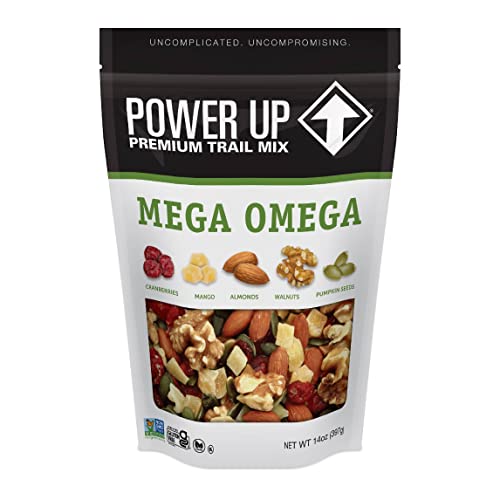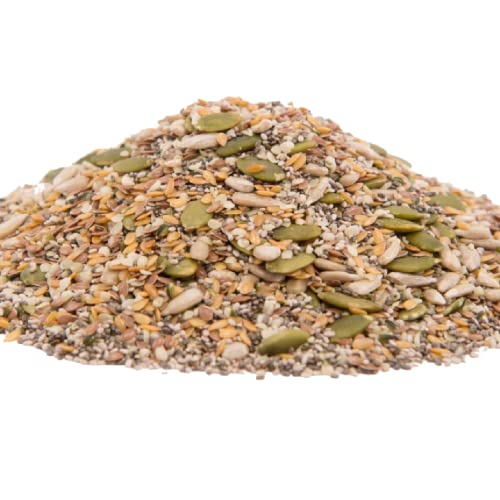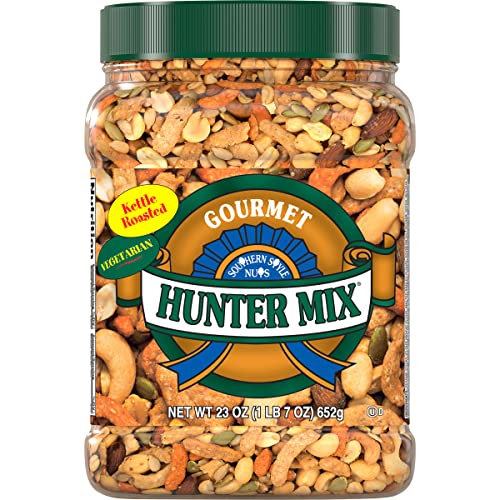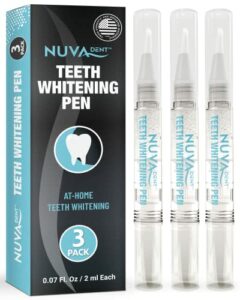Welcome, dear readers, to our blog post on the incredible health benefits of nuts and seeds. We understand that maintaining good health is a top priority for all of us. In our fast-paced lives, it can be challenging to find nutritious and delicious options that support our well-being. That’s why we are here today, to guide you through the wonderful world of nuts and seeds and shed light on their numerous health benefits. Whether you’re looking to boost your energy levels, support heart health, or improve your overall well-being, you’ve come to the right place. Join us as we explore the bountiful wonders of these tiny nutritional powerhouses.
Discover the Nutty Delights and Seed Sensations Taking the World by Storm
Health benefits of nuts
Nuts are not only delicious snacks but also offer a range of health benefits. Packed with essential nutrients, they can contribute to a well-rounded and balanced diet. In this blog section, we will delve into the numerous advantages of including nuts in your daily routine. So, grab a handful of your favorite nuts and let’s explore their benefits together!
1. Nutritional Powerhouses
Nuts are a rich source of various nutrients, making them a valuable addition to your diet. Here are some key nutrients found in nuts:
- Healthy Fats: Nuts are high in monounsaturated and polyunsaturated fats, which are considered heart-healthy fats that can help lower bad cholesterol levels.
- Fiber: Nuts are an excellent source of dietary fiber, which aids in digestion and helps maintain a healthy weight.
- Protein: Nuts are a good plant-based protein option, making them a valuable choice for vegetarians and vegans.
- Vitamins and Minerals: Nuts contain essential vitamins and minerals such as vitamin E, magnesium, and zinc, which play vital roles in supporting overall health.
2. Reduced Risk of Heart Disease
Including nuts in your diet has been associated with a reduced risk of heart disease. Here’s why:
- Heart-Healthy Fats: The high content of unsaturated fats in nuts, such as omega-3 fatty acids, can help lower bad cholesterol levels and reduce the risk of heart disease.
- Antioxidants: Nuts are rich in antioxidants, such as polyphenols, which have been linked to a reduced risk of heart disease by protecting against oxidative stress and inflammation.
- Lower Blood Pressure: Some studies suggest that nuts may help lower blood pressure, which is a significant risk factor for heart disease.
3. Improved Brain Function
Nuts have also been linked to improved brain health and cognitive function. Here’s how nuts can benefit your brain:
- Omega-3 Fatty Acids: Omega-3 fatty acids found in nuts, particularly walnuts, have been associated with better brain function and may help protect against age-related cognitive decline.
- Vitamin E: Nuts are a good source of vitamin E, an antioxidant that may help reduce the risk of Alzheimer’s disease and age-related cognitive decline.
- Phytochemicals: Nuts contain various phytochemicals, such as flavonoids and antioxidants, which may have neuroprotective properties.
4. Weight Management
Contrary to popular belief, including nuts in your diet can actually support weight management. Here’s how nuts can help:
- Satiety: Nuts are rich in healthy fats, protein, and fiber, which can help you feel fuller for longer, reducing the chances of overeating.
- Metabolism: The combination of protein, healthy fats, and fiber in nuts can boost your metabolism and promote healthy weight loss.
- Snacking Alternative: Nuts make for a satisfying and nutritious snack, replacing unhealthy options and helping to curb cravings.
5. Gut Health and Cholesterol Levels
Nuts play a role in promoting gut health and regulating cholesterol levels. Here’s how:
- Fiber Content: Nuts, especially almonds and pistachios, are high in fiber, which supports a healthy digestive system and can prevent constipation.
- Cholesterol Management: The healthy fats and fiber in nuts can help lower LDL (bad) cholesterol levels, reducing the risk of heart disease.
In summary, nuts offer a wide range of health benefits. From reducing the risk of heart disease to improving brain function and aiding in weight management, they are truly nutritional powerhouses. So, make sure to include a variety of nuts in your diet and enjoy their many advantages.
Health benefits of seeds
Seeds are often overlooked as a nutritious addition to our diet, but they are packed with essential nutrients that can greatly benefit our overall health. In this section, we will explore the various health benefits of seeds and why you should consider incorporating them into your daily routine.
Rich in Vitamins, Minerals, and Antioxidants
Seeds are a powerhouse of vitamins, minerals, and antioxidants that are essential for maintaining good health. Here are some key nutrients commonly found in seeds:
- Vitamin E: Seeds such as sunflower seeds and almonds are excellent sources of vitamin E, known for its antioxidant properties that protect our cells from damage caused by free radicals.
- Magnesium: Pumpkin seeds and flaxseeds are great sources of magnesium, which plays a crucial role in muscle and nerve function, blood pressure regulation, and bone health.
- Zinc: Sesame seeds and hemp seeds are rich in zinc, an important mineral that supports immune function, wound healing, and DNA synthesis.
Heart Health Support
Including seeds in your diet can have a positive impact on heart health. Here are some ways seeds can benefit your cardiovascular system:
- Omega-3 Fatty Acids: Chia seeds and flaxseeds are particularly beneficial as they contain high levels of omega-3 fatty acids. These healthy fats have been shown to lower cholesterol levels, reduce inflammation, and support brain function.
- Fiber Content: Many seeds, such as pumpkin seeds and sunflower seeds, are packed with dietary fiber. Fiber helps to lower cholesterol levels and maintain regular bowel movements, reducing the risk of heart disease.
Improved Digestion
Seeds are a great source of dietary fiber, which is essential for a healthy digestive system. Here’s how seeds can help improve digestion:
- Regular Bowel Movements: The high fiber content in seeds, like chia seeds and flaxseeds, helps promote regular bowel movements and prevent constipation.
- Gut Health: Some seeds, such as pumpkin seeds and sesame seeds, contain prebiotics that nourish the beneficial bacteria in our gut. This supports a healthy gut microbiome, which is essential for proper digestion and overall well-being.
Enhanced Skin Health
The vitamins and minerals found in seeds can also contribute to healthy and radiant skin. Here’s how seeds can benefit your skin health:
- Antioxidant Protection: The antioxidants found in seeds, such as vitamin E and selenium, help protect your skin cells from damage caused by free radicals, reducing the signs of aging.
- Omega-3 Fatty Acids: The omega-3 fatty acids present in seeds, like chia seeds and flaxseeds, can help reduce inflammation in the body, leading to improved skin conditions such as acne and eczema.
Incorporating Seeds into Your Diet
Now that you are aware of the numerous health benefits of seeds, you may be wondering how to incorporate them into your diet. Here are some simple ways to enjoy seeds:
- Sprinkle a tablespoon of chia seeds or flaxseeds onto your morning cereal or yogurt.
- Add pumpkin seeds or sunflower seeds to your salads or homemade granola.
- Use sesame seeds as a topping for stir-fries or in homemade bread and muffins.
- Snack on a handful of nuts and seeds for a nutritious and satisfying on-the-go snack.
By adding seeds to your meals and snacks, you can easily reap the health benefits they offer and take a step towards a healthier lifestyle.
Remember, always consult with a healthcare professional or registered dietitian before making significant changes to your diet, especially if you have any existing health conditions or concerns.
The information provided here is for informational purposes only and should not be considered medical advice.
Choosing the right nuts and seeds
When it comes to incorporating nuts and seeds into your diet, choosing the right ones can make a significant difference in terms of taste, freshness, quality, and overall health benefits. In this blog post, we will provide you with guidance on choosing the best nuts and seeds that align with your dietary needs and preferences. Whether you’re looking for a snack or a nutritious addition to your meals, this comprehensive guide will help you make informed decisions.
Factors to Consider
Freshness
Freshness is crucial when it comes to nuts and seeds. By selecting fresh options, you ensure that you are getting the maximum flavor and nutritional value. Here are some tips to help you determine the freshness of nuts and seeds:
- Look for nuts and seeds that have a vibrant color and a pleasant aroma.
- Check the packaging date or expiration date to ensure freshness.
- If possible, opt for nuts and seeds that are stored in airtight containers to maintain their freshness.
Quality
Choosing high-quality nuts and seeds guarantees that you are consuming a nutritious and tasty product. Here are some indicators of quality:
- Look for nuts and seeds that are whole and intact, without any signs of mold or insect damage.
- Choose options that are free from added preservatives, artificial flavors, and chemicals.
- Consider purchasing from reputable brands or trusted sources to ensure you’re getting the best quality.
Organic Options
If you prefer to consume organic products, there are many organic nuts and seeds available. Here are some benefits of choosing organic options:
- Organic nuts and seeds are grown without the use of synthetic pesticides, fertilizers, or genetically modified organisms (GMOs).
- They are often cultivated using sustainable farming practices that help protect the environment.
- Organic options can be a great choice for individuals with allergies or sensitivities to pesticides.
Consider Individual Dietary Needs and Allergies
Before selecting nuts and seeds, it is essential to consider your individual dietary needs and any allergies you may have. Here are some factors to keep in mind:
- Nut allergies: If you have a nut allergy, it’s important to avoid nuts altogether. However, seeds such as sunflower seeds, pumpkin seeds, and chia seeds can serve as suitable alternatives.
- Dietary preferences: If you follow a specific dietary plan, such as a vegan or gluten-free diet, ensure that the nuts and seeds you choose align with your preferences.
- Nutrient requirements: Different nuts and seeds offer varying nutritional profiles. Consider your nutrient requirements and choose options that complement your needs.
Choosing the Right Nuts and Seeds: A Comparison
To make it easier for you to select the right nuts and seeds, here’s a handy comparison table outlining some key points and benefits:
| Nut/Seed | Key Points | Benefits |
|---|---|---|
| Almonds | Rich in vitamin E, magnesium, and healthy fats | Promotes heart health and helps maintain healthy skin |
| Walnuts | High in omega-3 fatty acids and antioxidants | Supports brain health and reduces inflammation |
| Pumpkin Seeds | Excellent source of iron and zinc | Boosts immune system and supports prostate health |
| Chia Seeds | Packed with fiber and omega-3 fatty acids | Promotes digestion and aids in weight management |
Remember, this is just a small selection of the numerous nuts and seeds available. Feel free to explore a variety of options to find the ones that suit your taste and nutritional needs.
By considering freshness, quality, organic options, and individual dietary requirements, you can choose the right nuts and seeds that not only taste delicious but also provide you with optimal health benefits. So go ahead and start incorporating these nutritious powerhouses into your daily diet for a healthier and more satisfying lifestyle!
Incorporating nuts and seeds into your diet
Are you looking for a simple and delicious way to boost your nutrition? Look no further than nuts and seeds! These tiny powerhouses of nutrients are not only tasty but also offer a wide range of health benefits. In this blog post, we will provide practical tips on how to incorporate nuts and seeds into your daily diet, as well as some mouth-watering recipe ideas. Let’s dive in!
Adding Nuts and Seeds to Your Meals
1. Salads
- Sprinkle a handful of walnuts, almonds, or pumpkin seeds on top of your favorite salad for an added crunch and nutritional boost.
- Try making a homemade salad dressing using ground flaxseeds or chia seeds for added Omega-3 fatty acids.
2. Smoothies
- Blend a tablespoon of almond butter or peanut butter into your smoothie for a creamy and nutty flavor.
- Toss in some chia seeds or hemp seeds to add a dose of fiber and essential nutrients.
3. Yogurt
- Stir in a tablespoon of mixed nuts or a sprinkle of flaxseeds into your yogurt for a satisfying and nutritious snack.
- For a touch of sweetness, add some chopped dates or raisins along with a handful of sunflower seeds.
4. Snacks
- Keep a small container of mixed nuts and seeds in your bag or desk drawer for a quick and convenient snack on the go.
- Make your own trail mix by combining your favorite nuts, seeds, and dried fruits. It’s a perfect blend of energy and nutrition.
Delicious Recipe Ideas
- Nutty Quinoa Salad:
- Cook quinoa according to package instructions and let it cool.
- Add chopped almonds, pecans, sunflower seeds, and dried cranberries to the quinoa.
- Toss with a squeeze of lemon juice, olive oil, and a sprinkle of salt and pepper.
- Seed-Topped Avocado Toast:
- Toast a slice of whole-grain bread.
- Mash half an avocado and spread it on the toast.
- Sprinkle with a mixture of sesame seeds, pumpkin seeds, and flaxseeds.
- Energy Balls:
- In a food processor, combine dates, almonds, cashews, and chia seeds.
- Roll the mixture into small balls and refrigerate until firm.
The Benefits of Nuts and Seeds
- High in healthy fats: Nuts and seeds are packed with monounsaturated and polyunsaturated fats, which are beneficial for heart health.
- Excellent source of protein: They provide a plant-based source of protein, making them suitable for vegans and vegetarians.
- Rich in vitamins and minerals: Nuts and seeds offer a variety of essential nutrients like vitamin E, magnesium, and zinc.
- Good for digestion: Their high fiber content aids in digestion and promotes gut health.
- Antioxidant powerhouses: Nuts and seeds are packed with antioxidants, which help protect against cell damage and inflammation.
By incorporating nuts and seeds into your daily diet, you can enhance the flavor and nutritional value of your meals while reaping the numerous health benefits they offer. So why not start experimenting with these versatile ingredients today? Your taste buds and your body will thank you!
Remember: It’s important to be mindful of portion sizes, as nuts and seeds are high in calories. Enjoy them in moderation as part of a balanced diet.
The Nutritional Powerhouses that Can Improve Your Well-being
In conclusion, we can confidently say that nuts and seeds are a fantastic addition to our diets, providing numerous health benefits. Including a variety of these nutritious powerhouses in our daily meals can help improve our overall well-being. However, we must be mindful of portion sizes as they can be calorie-dense. If you have any specific dietary concerns or medical conditions, it’s always best to consult with a healthcare professional. Here’s to a healthier future with the goodness of nuts and seeds!






















